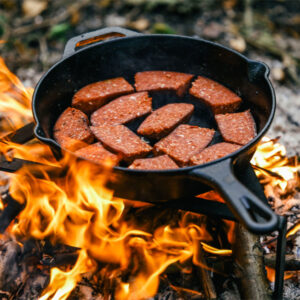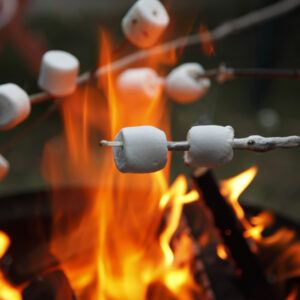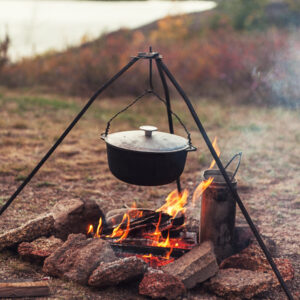Campfire Cooking: A Primal Skill for Survival
The ability to cook food over an open fire is a fundamental skill that has been honed over millennia. While modern conveniences have largely replaced this practice in daily life, mastering campfire cooking can be invaluable in a survival situation. Beyond mere sustenance, it’s a skill that fosters resilience, resourcefulness and a deep connection to nature.
The Importance of Campfire Cooking in Survival
- Caloric Intake: Cooking food can significantly increase its caloric value. This is crucial in a survival situation where energy conservation is paramount.
- Digestion: Cooking kills harmful bacteria, reducing the risk of foodborne illnesses. This is essential for maintaining health and preventing further complications.
- Morale: The act of preparing and sharing a cooked meal can provide a significant boost to morale, a vital component of survival.
- Resourcefulness: Learning to cook with limited resources forces you to think creatively and adapt to your environment.
Essential Campfire Cooking Techniques
While there are countless ways to cook over a campfire, here are some basic techniques:
- Grilling: A classic method involving placing food directly over the flames. Ideal for meats and vegetables.
- Baking: Using hot coals to cook food wrapped in foil or clay. This method is suitable for a variety of dishes, including potatoes, fish and desserts.
- Boiling: Heating water or liquids in a pot suspended over the fire. Essential for sanitation and preparing hot beverages.
- Roasting: Cooking food on a spit or skewer over the fire. Perfect for meats, vegetables and marshmallows.
Building a Suitable Campfire
A successful campfire cooking experience begins with a well-built fire. Consider these factors:
- Fuel: Gather dry wood of various sizes, from tinder to logs.
- Location: Choose a safe, open area away from flammable materials.
- Ventilation: Ensure proper airflow for optimal burning.
- Control: Build a fire that is manageable and can be easily extinguished.
Safety First
- Fire Safety: Always prioritize fire safety by following local regulations and guidelines.
- Food Safety: Properly clean and prepare food to prevent contamination.
- Equipment Care: Handle hot pots and pans with caution to avoid burns.
Mastering campfire cooking is more than just a survival skill. It’s a journey of discovery, connecting you with nature and fostering self-reliance. By practicing these techniques, you’ll not only be better prepared for a potential emergency but also enhance your outdoor experiences.



Using Fire for Cooking and Warmth: A Survivalist’s Ultimate Guide - Doomsday Robots
December 17, 2024 @ 3:38 am
[…] heat for cooking. Cooking your meals over a campfire not only enhances flavors but also promotes increased caloric intake essential for energy […]